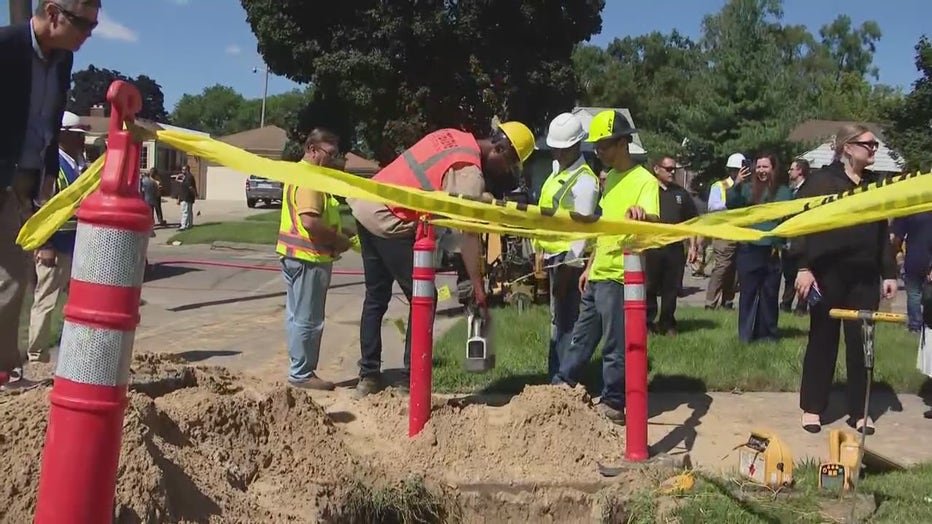Detroit secures $90M in funding to help replace lead service pipes
Detroit continues effort to replace lead service lines
According to the EPA, $90 million in federal and state funding is being invested to expedite the replacement of Detroit's outdated lead service pipes.
DETROIT (FOX 2) - Millions in federal and state tax dollars are going towards replacing lead service lines in Detroit.
"We wanted to deliver clean, safe water – the cleanest in America, I would argue," said the director of the Detroit Water and Sewerage Department, Gary Brown, during a press conference on Friday.
According to the Environmental Protection Agency (EPA), $90 million is being invested to expedite the replacement of Detroit's outdated lead service pipes.
The city has about 80,000 lead service lines. And so far, approximately 9,500 have been substituted.
"We are replacing 8,000 lead lines a year in this city, so the families will know for generations that the water coming into these homes will be pure," said Detroit Mayor Mike Duggan.
Lead service lines transport water from public mains to homes. Although a corrosion inhibitor is added to the water to minimize lead corrosion, there's still a risk of lead being present in tap water.
Typically, Detroit residences built pre-1945 have lead pipes unless recently updated. The city banned lead in new water service installations in 1945.
Part of the funding to replace the lead pipes is coming from the American Rescue Plan Act, but other federal and state dollars are also being used.
"I cannot pass $100 million a year for the next ten years onto rate payers," Brown said. "So we have to find money to be able to do this and keep water affordable."
The hope from state, local and federal leaders is that the funding will also spur economic activity – with a heavy emphasis on hiring minority contractors.
"We wanted to make sure Detroiters are doing the work," Duggan said. "It’s members of our own community rebuilding that."
Since 2019, Michigan has invested more than $4 billion towards water infrastructure improvements, using state and federal resources – with nearly 25% of the money helping remove service lines across the state, according to EAGLE.

As for Detroit's ongoing effort to replace the outdated lead pipes, EPA's acting assistant administrator for water, Bruno Pigott, praised the city.
"It’s a model of what we want cities to do around the country. They are literally knocking on people’s doors; that not just a phrase," Pigott said. "They bring people out into the street to talk to them about what they’re going to do."

